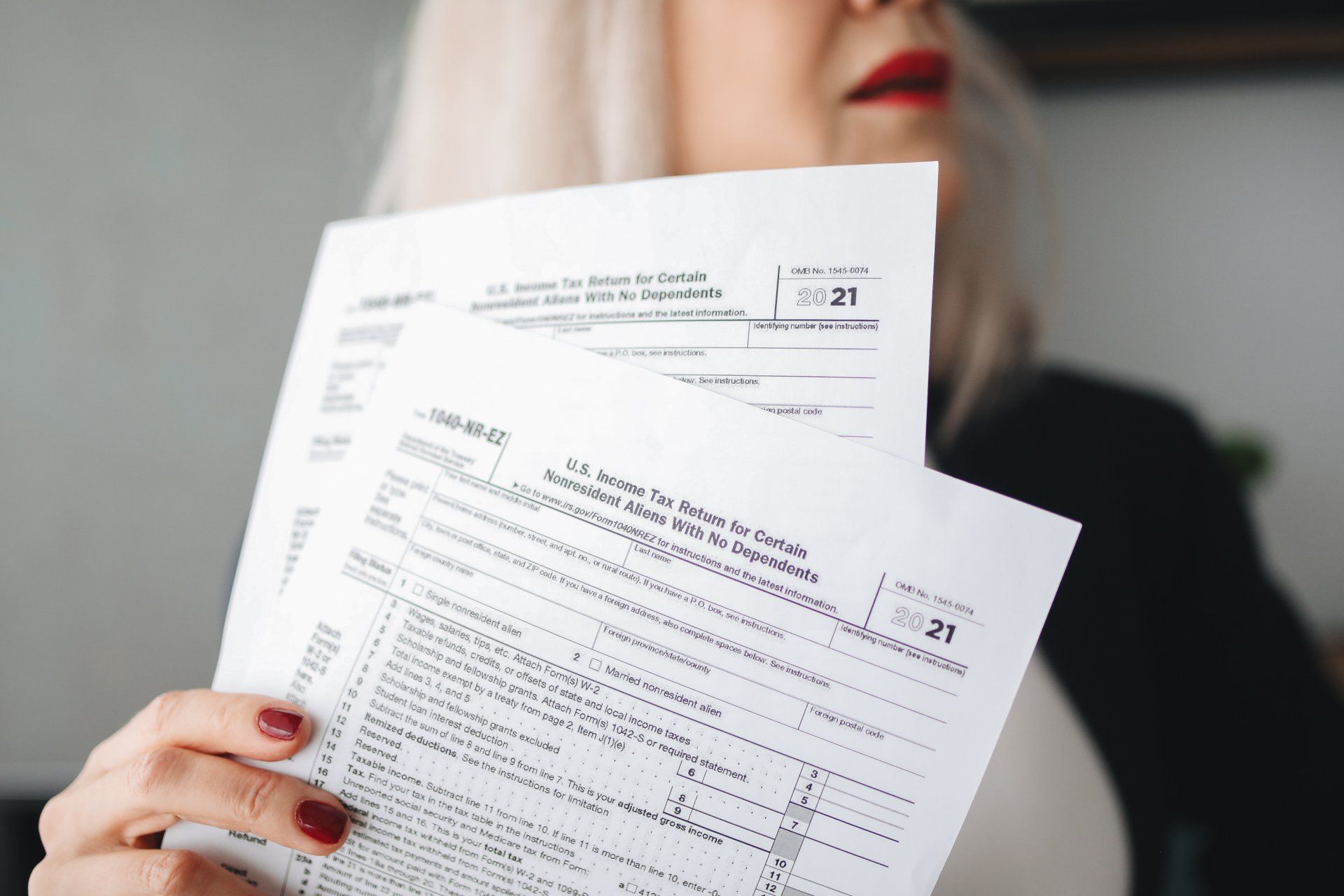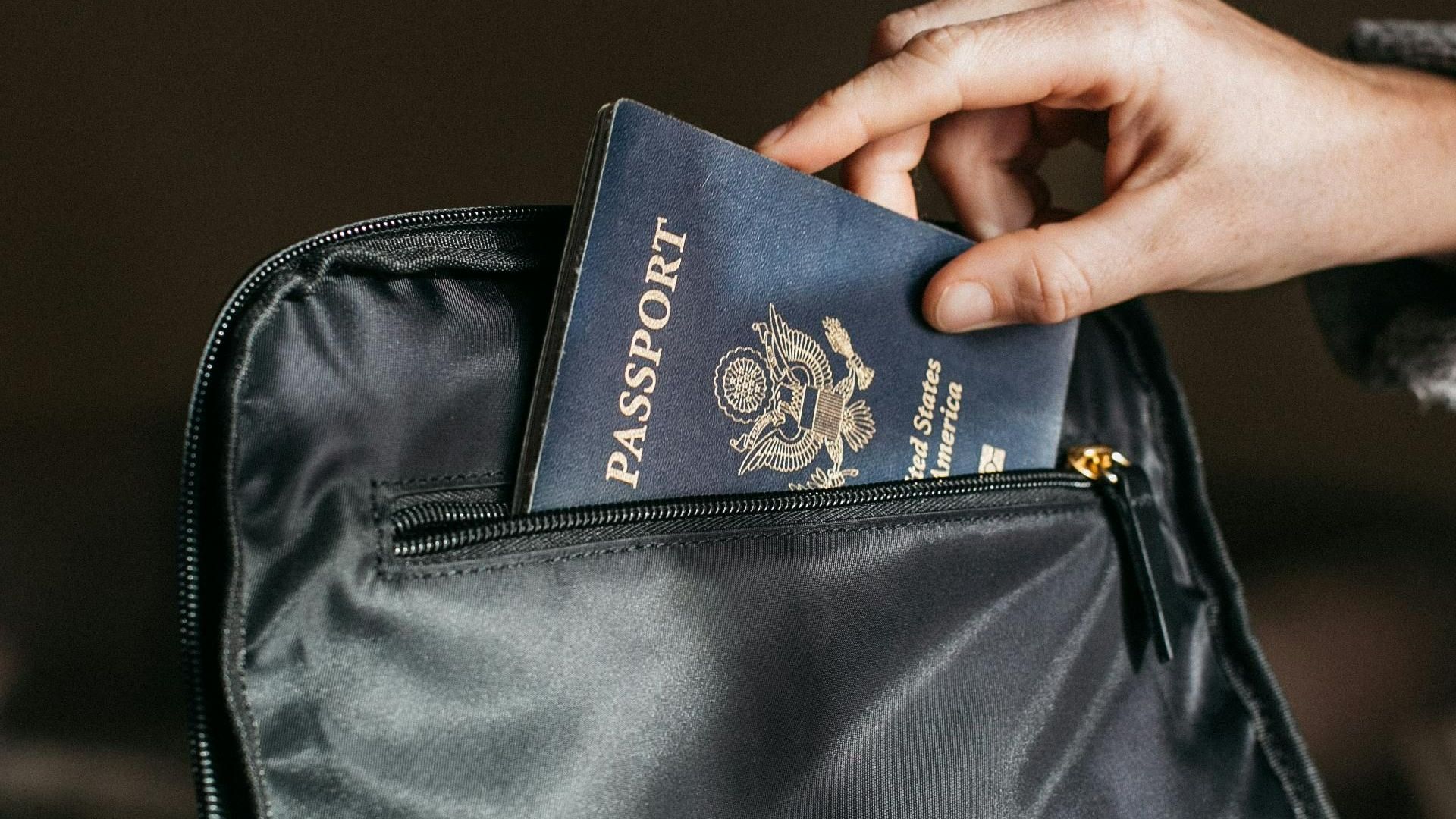Demander la nationalité américaine après avoir été un resident permanent legal pendant au moins 5 ans
Denice Flores • October 10, 2024
Click here to read this article in English
Pour pouvoir prétendre à la naturalisation américaine en tant que résident permanent légal depuis au moins cinq ans, vous devez:
- Prouver que vous êtes un résident permanent légal des États-Unis depuis au moins cinq ans ;
- Démontrer que vous avez résidé de manière continue aux États-Unis pendant au moins cinq ans immédiatement avant de déposer votre demande de naturalisation ;
- Démontrer que vous avez été physiquement présent aux États-Unis pendant au moins 30 mois au cours des cinq années précédant immédiatement la demande de naturalisation ; et
- Réussir le test de naturalisation.
Le test de naturalisation comprend un test d'anglais et un test d'éducation civique.
Le demandeur doit montrer qu'il sait lire, écrire et parler un anglais de base. L'agent de l'USCIS chargé de l'entretien demandera au demandeur de lire une phrase en anglais et d'écrire une phrase en anglais. Si le demandeur démontre sa capacité à lire, écrire et parler l'anglais, il réussit cette partie du test.
L'épreuve d'éducation civique est une épreuve orale au cours de laquelle le demandeur doit répondre à des questions sur le gouvernement et l'histoire des États-Unis. L'agent de l'USCIS posera au demandeur jusqu'à 10 questions parmi les 100 questions du test d'éducation civique. Pour réussir cette partie du test, le demandeur doit répondre correctement à au moins 6 questions.
Si le candidat remplit toutes les conditions d'éligibilité et réussit le test de naturalisation, la dernière étape avant la naturalisation est d'assister à la cérémonie de prestation de serment pour devenir un citoyen américain naturalisé.
Si vous avez des questions ou si vous souhaitez obtenir plus d'informations sur votre éligibilité à la naturalisation, veuillez contacter notre bureau pour prendre rendez-vous avec nos avocats expérimentés en droit de l'immigration.
Ce blog n'est pas destiné à fournir des conseils juridiques et rien ici ne doit être interprété comme établissant une relation avocat-client. Veuillez prendre rendez-vous avec un avocat spécialisé en droit de l'immigration avant d'agir sur la base de toute information lue ici.
Denice Flores
Similar Posts

To be eligible for U.S. naturalization based on being a lawful permanent resident for at least five years, you must: Prove you have been a lawful permanent resident of the U.S. for at least five years; Demonstrate continuous residence in the U.S. for at least five years immediately before applying for naturalization; Show you have been physically present in the U.S. for at least 30 months out of the five years immediately before applying for naturalization; and Pass the naturalization test. The naturalization test consists of the English and civics test. The applicant must show his/her ability to read, write, and speak basic English. The interviewing USCIS officer will ask the applicant to read a sentence in English and to write a sentence in English. If the applicant demonstrates his/her ability to read, write, and speak English, the applicant passes this portion of the test. The civics test is an oral test, and the applicant is asked questions about the American government and history. The USCIS officer will ask the applicant up to 10 questions from the list of 100 civics test questions. To pass this portion of the test, the applicant must answer at least 6 questions correctly. If the applicant satisfies all of the eligibility requirements and passes the naturalization test, the last step before naturalizing is to attend the oath ceremony to become a naturalized U.S. citizen. If you have any questions and would like more information about your eligibility for naturalization, please contact our office to schedule a consultation with our experienced immigration attorneys.

U.S. Citizenship and Immigration Services made changes to the naturalization application and the filing fee which became effective April 1, 2024. The naturalization application, Form N-400, was updated. The new form edition is dated 04/01/2024. As of June 3, 2024, USCIS will only accept the new form edition. The filing fee for Form N-400 also changed. The prior filing fee was $640.00 plus a biometric fee of $85.00, for a total of $725.00. The new filing fee became effective April 1, 2024, so all naturalization applications postmarked April 1, 2024, or later, must include the new appropriate filing fee. The new general fee if you file a paper application is $760.00, and if you file the application online the fee is $710.00.

In the landscape of U.S. immigration law, the pursuit of an employment-based green card can be a significant milestone for foreign nationals aspiring to establish their careers in the United States. Among the various pathways available, self-sponsorship for an employment-based green card stands out as an option that grants individuals the ability to sponsor their own immigration journey, offering a unique opportunity for skilled professionals and entrepreneurs. Traditionally, most employment-based green card categories require an employer to sponsor the foreign national, demonstrating the need for their skills or expertise. However, certain visa categories permit self-sponsorship, allowing individuals to petition for permanent residency without a specific employer's sponsorship. These include: 1. EB-1A Extraordinary Ability: Individuals with extraordinary abilities in the sciences, arts, education, business, or athletics may self-petition for an employment-based green card. They must demonstrate sustained national or international acclaim, providing extensive evidence of their achievements in their field. 2. EB-2 National Interest Waiver (NIW): This category enables individuals whose work is deemed to be in the interest of the United States to self-sponsor. Applicants must demonstrate their work's significance and how it benefits the nation as a whole. 3. EB-5 Immigrant Investor Program: Entrepreneurs investing in a new commercial enterprise that creates jobs for U.S. workers can self-petition for an employment-based green card. They must meet certain investment thresholds and fulfill job creation requirements. While these classifications have the advantage of allowing an individual to self-petition, each of these applications have distinct, stringent requirements to meet. This route can be challenging, requiring substantial evidence and a compelling case to prove extraordinary abilities or qualifications. Additionally, meeting the high standards set by USCIS for self-sponsorship can be demanding, necessitating thorough preparation and documentation. Navigating the complexities of immigration law, especially concerning self-sponsorship, often requires professional legal guidance. Seeking assistance from experienced immigration attorneys or consultants can significantly enhance the chances of a successful self-sponsored green card application, ensuring compliance with the intricate regulations and requirements. If you have any questions about what this means for you, please schedule a consultation with one of our experienced attorneys. We look forward to working with you.

The Military Selective Service Act requires all men living in the United States to register with the Selective Service System within 30 days of turning 18 years old and up to 26 years of age. The Selective Service System (SSS) is used by the U.S. government to draft soldiers into service during times of war. There are a few exceptions to the registration requirement: First, if you hold non-immigrant status until the age of 26, you do not have to register with the SSS. Second, if you enter the U.S. after the age of 26, you do not have to register with the SSS, as the age requirement to register is between 18 and 26. Third, men born after March 29, 1957, and before December 31, 1959, are not required to register. To verify online go to: https://www.sss.gov/verify/ . The information you will need to provide is your last name, social security number, and date of birth. If you find your registration record, download, and print an official Selective Service Registration Acknowledgement Letter from the website and include it with your application. This is sufficient to show that you registered. If you can’t verify your registration because you don’t have a social security number or you didn’t have one when you registered, or you prefer to call, you need to call the SSS at: (888) 655-1825 . Note, failure to register will not automatically lead to the U.S. Citizenship and Immigration Services denying your naturalization application. In fact, even if you did not register and you were required to do so, the USCIS cannot deny your application if you show that you did not know you were required to register, or the failure to register wasn’t intentional. If you have any questions, please schedule a consultation with one of our experienced attorneys and we will be more than happy to assist you.

In recent months, the U.S. government has intensified its vetting procedures for individuals seeking entry into the United States, whether through visa applications abroad or inspection at ports of entry. This shift, prioritized by the current administration, is having a noticeable impact on immigrants, visa holders, and even lawful permanent residents (LPRs). At U.S. consulates worldwide, applicants are experiencing increased delays , often being placed into administrative processing under Section 221(g) or referred for Security Advisory Opinions (SAOs) , which can significantly prolong visa issuance. Officers are now engaging in deeper reviews of applicants' backgrounds, including their t ravel histories, social media accounts, and foreign ties . This scrutiny applies to a wide range of visa categories, from visitor visas to employment-based petitions. Importantly, officers are exercising broader discretion when deciding who qualifies for a visa, making the process more unpredictable, even for applicants with strong cases. This enhanced vetting does not end at the consulate. Individuals entering the U.S. — even those with valid visas or green cards — are increasingly subject to prolonged secondary inspections by Customs and Border Protection (CBP). Officers may ask detailed questions about prior immigration history, travel patterns, and social media activity. In some cases, travelers are asked to provide access to their electronic devices for further inspection. There are also growing reports of travelers being referred to deferred inspection or even issued a Notice to Appear (NTA) for removal proceedings, despite previously lawful entries. While some of these practices have existed in the past, the current administration has formalized and expanded them. Experts warn that additional travel restrictions or targeted bans could also emerge as part of the administration’s enforcement priorities. For employment-based applicants, these delays and complications can severely impact U.S. businesses and foreign nationals who contribute critical skills to the U.S. economy. It is more important than ever to be well-prepared before attending a visa interview or traveling internationally. Understanding your rights and preparing thoroughly can help you navigate this uncertain landscape. At Santos Lloyd Law Firm, P.C. , our immigration attorneys are ready to guide you through this evolving process and ensure you are informed, supported, and protected. Please contact us if you have questions or need assistance.

On March 31, 2024, U.S. Citizenship and Immigration Services (USCIS) implemented a policy update that limits gender marker selections on all immigration forms and systems to two biological sexes: male and female. This change eliminates the option for applicants to select a non-binary or “X” gender marker—an option that had previously been permitted on some forms. While USCIS emphasizes that this update does not change who qualifies for immigration benefits, it may significantly impact how certain applications—particularly asylum claims based on gender identity-related persecution—are understood and evaluated. What Has Changed? Under the revised policy, applicants may now only choose “Male” or “Female” when completing USCIS forms. The ability to select a non-binary or third-gender option is no longer available. Applicants may still request to change their gender marker with USCIS, but only within the male/female binary. Supporting documentation, such as medical or legal records, is not required to make the change. This means that transgender individuals can still align their gender marker with their identity—if it falls within the two binary categories—but non-binary individuals are no longer represented. The change follows guidance issued by the federal Office of Management and Budget (OMB), which called for greater consistency in the collection of sex and gender data across federal agencies. Impact on Asylum Applicants This policy update is especially important for individuals applying for asylum based on persecution related to their gender identity. Under U.S. immigration law, asylum is available to people who have suffered persecution—or fear future persecution—based on their membership in a “particular social group.” This includes people targeted for being transgender, gender non-conforming, or otherwise not aligning with socially expected gender roles in their home country. Although the legal standard for asylum remains unchanged, the removal of the non-binary gender marker could make it harder for some applicants to clearly present and document their identity. In asylum cases, credibility and clarity are crucial. The ability to accurately reflect one’s gender identity on official forms can play an important role in establishing the foundation of a persecution claim. Now, applicants who identify as non-binary or outside the traditional male/female categories may be forced to select a gender that does not align with their lived experience. This could lead to confusion in their case file or require additional explanation during interviews or hearings. This policy could weaken the strength of some asylum claims—not because the underlying facts have changed, but because the official forms now fail to reflect the applicant’s true identity. For example: A non-binary person applying for asylum after being targeted in their home country may now have to select “Male” or “Female” on their asylum application, despite not identifying as either. This mismatch may lead adjudicators to question the applicant’s identity, possibly weakening the strength of the claim or requiring added clarification and documentation. In defensive asylum cases—where applicants are in removal proceedings—such inconsistencies could create unnecessary hurdles and complicate the evidentiary presentation. What Can Applicants Do? Despite the change, individuals can still pursue asylum based on gender identity. The underlying eligibility criteria remain the same. However, applicants should be prepared to clearly explain any differences between their stated identity and the gender marker required on USCIS forms. Applicants are encouraged to: Include a personal declaration explaining their gender identity in detail and how it relates to their fear of persecution. Provide evidence such as affidavits, country condition reports, or expert testimony that supports the claim. Work with an experienced immigration attorney who can help present the claim effectively and prepare for any questions that might arise from the new form limitations. The new USCIS policy on gender markers may seem like a technical update, but for asylum seekers fleeing gender-based persecution, it has real implications. While individuals are still legally eligible to seek protection, the limitation to binary gender options could make it more difficult to fully and clearly present their case. If you or someone you know is facing immigration challenges related to gender identity—or is concerned about how this policy may impact an asylum claim—please contact Santos Lloyd Law Firm to schedule a consultation with one of our experienced immigration attorneys. We’re here to help ensure your voice is heard and your case is handled with the care and expertise it deserves.

In 2025, the immigration landscape continues to shift under the weight of national security concerns, ushered in by Executive Order “ Protecting the United States From Foreign Terrorists and Other National Security and Public Safety Threats. ” This directive tasks federal agencies—including the U.S. Department of State—with implementing enhanced screening and vetting protocols for all foreign nationals seeking visas or other immigration benefits. The result? A dramatically intensified vetting process, along with mounting concerns from immigrants, attorneys, and civil liberties advocates alike. Traditionally, airport security focused on verifying travel documents and screening for prohibited items, while consular officers assessed the legitimacy of visa petitions and the admissibility of applicants. Extreme vetting, however, represents a significant shift toward a far more invasive and comprehensive investigative process. It now includes detailed background checks, biometric verification, digital forensics, and expansive scrutiny of an applicant’s online presence and criminal or financial records. Since President Trump’s second term began in January 2025, the implementation of extreme vetting has expanded rapidly. Today, border screenings go far beyond routine document checks, encompassing a full-scale evaluation of a traveler’s digital life. This pivot reflects the administration’s intensified focus on national security, but it has also triggered urgent discussions about privacy, due process, and the fairness of modern immigration enforcement. At U.S. ports of entry—especially airports—noncitizens are now subject to rigorous and invasive procedures, including: Inspection of cell phones, laptops, and other devices (including deleted content) Review of social media activity on platforms like TikTok, Instagram, and X (formerly Twitter) Biometric scanning, including fingerprinting and facial recognition These measures are no longer confined to travelers from high-risk countries. In practice, extreme vetting applies broadly across all nationalities, and increasingly affects lawful permanent residents as well. For noncitizens, this new landscape introduces a heightened level of uncertainty and vulnerability. Delays at U.S. consulates for visa issuance or renewal are becoming routine. Travelers must now be acutely aware of these changes, and those attending consular interviews or seeking visa renewals should be prepared to provide additional documentation verifying their maintenance of status, compliance with visa conditions, and the bona fide nature of their visa applications. It is critical to organize supporting materials in advance and be ready to answer questions about employment, education, travel history, and online activity. As the U.S. government continues to expand its use of data-driven risk assessment tools, travelers must adapt to a new normal, one where preparation is essential to navigating the immigration system without disruption.



